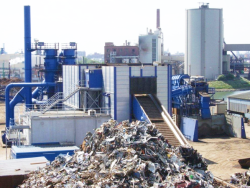A new independent study conducted by the University of Applied Sciences. Ernst Abbe's visit to Jena in Germany has raised serious concerns about proposals to restrict exports of steel scrap under the European Steel and Metals Action Plan (SMAP). A study commissioned by the Federal Association of German Steel Processing and Waste Management Companies (BSV) and the Association of German Metal Dealers and Processors (VDM) concludes that such measures would damage Europe's competitiveness and hinder its green transition.
Why bans on scrap exports are problematic
According to the study, recycled steel is a vital, constantly available raw material that must be fully utilized. Each ton of recycled steel avoids approximately 1.66 tons of carbon emissions, regardless of where it is consumed. The report highlights that Europe's net scrap exports are driven by low domestic demand, not oversupply. At the same time, the EU remains dependent on the import of certain high-quality grades, such as stainless steel scrap, which makes the export ban counterproductive.
Risks to trade and decarbonization
The researchers warn that export restrictions could distort markets, redirect trade flows and provoke retaliatory measures from global partners. Such restrictions may also limit access to high-quality imported scrap and reduce global scrap use, ultimately leading to increased carbon emissions worldwide. In short, export barriers will not strengthen the EU.






